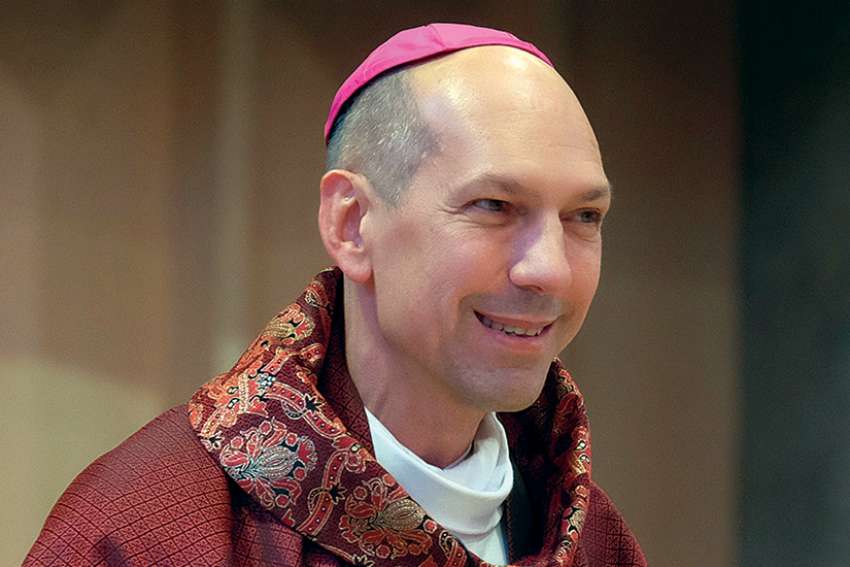“There is nothing easy about this,” said Archbishop Donald Bolen of Regina. “We’re struggling to find a way how to walk with victims.”
While Fr. Robert Mackenzie is not accused of any misconduct from his roughly 30 years in the Regina archdiocese, several complaints have been made against him concerning incidents that occurred at two boarding schools in Scotland from the 1950s through the 1980s. The retired priest, now in his mid-80s, has denied all allegations and is fighting extradition.
The archdiocese had relieved MacKenzie of his priestly duties in 2016 and he has been living at a home for retired priests in Regina, following protocols in place to deal with such situations.
The protocols around abuse have been updated in recent years, but at this point, the archdiocese — and the Canadian Church — is still coming to grips with the scourge of clergy sex abuse that has rocked the Catholic Church worldwide.
Bolen knows the Church still has a long way to go.
Attention was ramped up on the issue last summer when a Pennsylvania grand jury report exposed thousands of cases of sexual assault that were covered up, leading to a cascade of calls for change, both inside and outside the Church.
Bolen said his diocese is “committed to transparency and to accountability and to responsibility, and we’re being encouraged to listen to victims and to learn from victims and to walk with victims and to prioritize victims.”
Bolen is under no illusion that the steps being taken now are going to put an end to the scandal and make it go away.
“We make lots of mistakes,” said the archbishop.
“It’s such a big learning curve for us. As Church we simply have such a deeply imbedded instinct of protecting the Church. It’s even more deep than protecting the clergy. Somewhere along the line the voice of victims has been suppressed and that has caused such deep pain.”
In Regina, Bolen said he’s been lucky to have worked with a small group of abuse victims committed to working with the Church to bring about needed change.
“There has been an incredible generosity and willingness from victims to share their experience and let the Church learn from it,” he said.
Pamela Walsh, an abuse victim, has worked closely with Bolen in trying to bring about needed change in the Church. One way to get the victims’ voice heard has been the creation of special services regarding clergy sexual abuse. A service styled on the Way of the Cross has asked people to “move into the trauma of abuse,” Walsh wrote on the archdiocesan website.
Walsh said “the group managed to enter into each other’s wounds, creating a powerful text that invited others to hear the painful torment of clergy sexual abuse.”
“Education and raising awareness within the Church structures and for non-victims were among the main goals, with the idea that people might begin to see how victims suffer in silence as the result of clergy sexual abuse,” Walsh wrote.
Since the first service was held in Shaunavon in southwestern Saskatchewan, it has been held, along with newer services, in parishes throughout the archdiocese.
The archdiocese also established the CARES Healing Community, which meets weekly to accompany victims on their healing journey.
While Bolen agrees the right steps are being taken in putting victims needs first, he can’t gloat over what has been done to date.
“I’m not trying to set us up as the shining example compared with what went before,” he said. “There’s not much shining about what we’re doing. We’re trying to be deeply honest.”
Dioceses are in constant contact and trying to learn best practices in dealing with the crisis, but it can’t be done without hearing the voice of victims, the archbishop said.
“We’re on a big learning curve,” said Bolen. “We can’t do it without the help of victims.”


